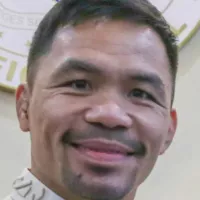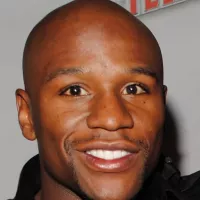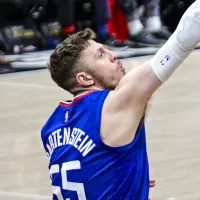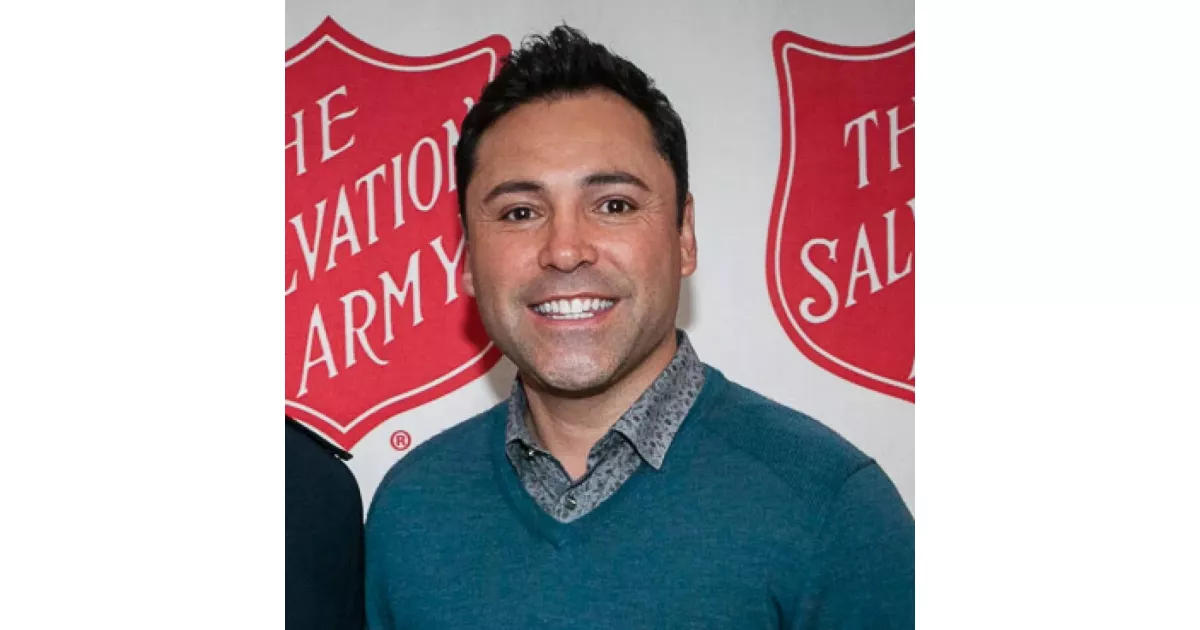From career breakthroughs to professional milestones, explore how Oscar De La Hoya made an impact.
Oscar De La Hoya, nicknamed "The Golden Boy of Boxing", is an American boxing promoter and former professional boxer. He competed from 1992 to 2008, achieving significant success by winning 11 world titles across six weight classes, including lineal championships in three. Representing the United States, he won a gold medal in the lightweight division at the 1992 Summer Olympics shortly after graduating high school. He is considered one of the greatest boxers of all time, ranked 16th by BoxRec.
1989: Golden Gloves Win
In 1989, Oscar De La Hoya won the National Golden Gloves (57 kg) in May, Knoxville, Tennessee.
1989: National Golden Gloves Title
In 1989, Oscar De La Hoya won the National Golden Gloves title in the bantamweight division, marking an early achievement in his boxing career.
1990: U.S. National Championships
In February 1990, Oscar De La Hoya won the U.S. National Championships (57 kg) in Colorado Springs, Colorado.
1990: Goodwill Games Gold Medal
In July-August 1990, Oscar De La Hoya won a gold medal at the Goodwill Games (57 kg) in Seattle, Washington.
1990: United States Olympic Cup
In June 1990, Oscar De La Hoya won the United States Olympic Cup (57 kg) at the Salt Palace Exhibition Hall in Salt Lake City, Utah.
1991: U.S. National Championships Gold Medal
In February-March 1991, Oscar De La Hoya secured the Gold Medal at the U.S. National Championships (60 kg) held in Colorado Springs, Colorado.
1991: U.S. Olympic Festival Gold Medal
In July 1991, Oscar De La Hoya won the gold medal at the U.S. Olympic Festival (60 kg) held at The Forum in Los Angeles, California.
1991: World Championships Participation
In November 1991, Oscar De La Hoya participated in the World Championships (60 kg) held at the State Sports Centre in Sydney, Australia.
November 23, 1992: Professional Debut
On November 23, 1992, Oscar De La Hoya made his professional debut, achieving a first-round KO victory over Lamar Williams in 1 minute 42 seconds.
1992: Summer Olympics Gold Medal Win
In 1992, Oscar De La Hoya won the gold medal at the Summer Olympics in Barcelona, defeating German boxer Marco Rudolph. The U.S. media publicized his quest to fulfill his mother's dying wish and nicknamed him "The Golden Boy".
1992: Olympic Games Gold Medal
In July–August 1992, Oscar De La Hoya secured the Gold Medal at the Olympic Games (60 kg) held at Palau dels Esports, Barcelona, Spain.
December 9, 1993: Fight Pulled Due to Wrist Injury
On December 9, 1993, Oscar De La Hoya was scheduled to fight Jesús Vidal Concepción but pulled out due to a wrist injury, leading to speculation about the severity of the injury.
July 29, 1994: WBO Lightweight Title Win
On July 29, 1994, Oscar De La Hoya knocked out Jorge Páez to win the vacant WBO Lightweight title, marking a significant achievement in his career.
February 1995: Victory over John-John Molina
In February 1995, Oscar De La Hoya defeated John-John Molina by unanimous decision, adding another victory to his record.
May 6, 1995: Defeated Rafael Ruelas
On May 6, 1995, Oscar De La Hoya defeated IBF lightweight champion Rafael Ruelas in a unification bout, solidifying his position in the lightweight division.
1995: Ring Magazine Fighter of the Year
In 1995, Oscar De La Hoya was named The Ring magazine Fighter of the Year, marking a significant achievement in his boxing career.
June 7, 1996: Victory over Julio César Chávez
On June 7, 1996, Oscar De La Hoya defeated Julio César Chávez by a fourth-round TKO, claiming the lineal and WBC light welterweight championship.
June 14, 1997: Defense of WBC Welterweight Title
On June 14, 1997, Oscar De La Hoya successfully defended his WBC welterweight title, defeating David Kamau by second-round KO.
September 13, 1997: Defeat of Héctor Camacho
On September 13, 1997, Oscar De La Hoya defeated Héctor Camacho by unanimous decision, maintaining his position in the welterweight division.
December 6, 1997: Victory Over Rivera
On December 6, 1997, Oscar De La Hoya defeated Wilfredo Rivera by eighth-round TKO, adding to his list of successful title defenses.
1997: Welterweight Division Move
In 1997, Oscar De La Hoya moved up to the welterweight division and fought Pernell Whitaker, winning a twelve-round unanimous decision to capture the lineal and WBC titles and becoming The Ring Magazine's number-one ranked pound-for-pound fighter.
1997: Top-Rated Fighter by The Ring magazine
In 1997, Oscar De La Hoya was named the top-rated fighter in the world, pound for pound, by The Ring magazine, solidifying his status as a leading boxer.
June 13, 1998: Defeat of Patrick Charpentier
On June 13, 1998, Oscar De La Hoya defeated mandatory challenger Patrick Charpentier by third round TKO, marking another successful title defense.
September 18, 1998: Rematch Victory Over Julio César Chávez
On September 18, 1998, Oscar De La Hoya fought a rematch with Julio César Chávez and defeated him by eighth-round TKO, settling their rivalry.
1998: Chavez Rematch
In 1998 Oscar de la Hoya had a rematch with Julio César Chávez due to Chavez stating that Oscar didn't truly beat him in their initial fight.
1998: Top-Rated Fighter by The Ring magazine
In 1998, Oscar De La Hoya continued to be recognized as the top-rated fighter in the world, pound for pound, by The Ring magazine, reaffirming his dominance in boxing.
September 18, 1999: Fight against Félix Trinidad
On September 18, 1999, Oscar De La Hoya fought Félix Trinidad, losing by majority decision in a controversial fight that generated much discussion and debate.
1999: Wrist Injury Origin
In 1999, Oscar De La Hoya incurred a wrist injury in the first round of his fight against Oba Carr, which continued to bother him in subsequent fights.
February 26, 2000: Knockout of Derrell Coley
On February 26, 2000, Oscar De La Hoya knocked out Derrell Coley in a WBC eliminator, setting the stage for future title opportunities.
June 17, 2000: Loss to Shane Mosley
On June 17, 2000, Oscar De La Hoya lost his WBC welterweight title to Shane Mosley by a split decision, marking a setback in his career.
2000: Cecilia Gonzalez De La Hoya Cancer Center Opening
In 2000, the Cecilia Gonzalez De La Hoya Cancer Center was formally opened at the White Memorial Medical Center (WMMC) by De La Hoya and his siblings, with a $350,000 donation from De La Hoya, in honor of their mother.
March 24, 2001: Defeat of Arturo Gatti
On March 24, 2001, Oscar De La Hoya defeated Arturo Gatti by fifth-round TKO, marking another victory in his career.
October 8, 2001: WBC Light Middleweight Championship Defense Announcement
On October 8, 2001, it was announced that Oscar De La Hoya would defend his WBC light middleweight championship against Roman Karmazin.
November 8, 2001: Fight Cancellation due to Injury
On November 8, 2001, the fight with Roman Karmazin was cancelled due to Oscar De La Hoya suffering from a torn cartilage in his left wrist, an old injury that was aggravated during sparring.
May 2002: Withdrawal from Fight with Fernando Vargas
In May 2002, Oscar De La Hoya had to withdraw from a scheduled fight against Fernando Vargas due to a hand injury, prolonging their rivalry.
2002: Golden Boy Promotions Founded
In 2002, Oscar De La Hoya founded Golden Boy Promotions, a combat sport promotional firm that also owns a 25% stake in the Houston Dynamo, marking his transition into boxing promotion.
2008: End of Boxing Career
In 2008, Oscar De La Hoya ended his professional boxing career. During his career he won 11 world titles in six weight classes, including lineal championships in three weight classes.
2009: Retirement Announcement
In 2009, Oscar De La Hoya announced his retirement from professional boxing, concluding a 16-year career.
November 24, 2018: Inaugural Golden Boy MMA event
On November 24, 2018, the inaugural Golden Boy MMA event took place, beginning with a trilogy bout between Chuck Liddell and Tito Ortiz, marking De La Hoya's expansion into promoting MMA matches.
Mentioned in this timeline

Donald John Trump is an American politician media personality and...

Manny Pacquiao nicknamed PacMan is a Filipino icon celebrated as...

Wayne Gretzky nicknamed The Great One is widely considered the...
California is a U S state on the Pacific Coast...

Floyd Mayweather Jr is a retired American professional boxer and...
Sports Illustrated SI is an American sports magazine launched in...
Trending

11 minutes ago Cavaliers defeat Hornets 118-113: Game recap and key takeaways from the match.
11 minutes ago Vaccination Requirements and Measles Prevention in Cabo San Lucas and La Paz
11 minutes ago Cason Wallace Secures Four Steals in Thunder's Victory: A Promising NBA Performance.
1 day ago Roman Anthony expected as Red Sox leadoff hitter in 2026, lineup prediction

12 minutes ago Isaiah Hartenstein showcases passing skills, removed from injury report, fills stat sheet.
12 minutes ago Sadie Sink and Noah Jupe Star in Romeo & Juliet West End Production.
Popular

Jesse Jackson is an American civil rights activist politician and...

Barack Obama the th U S President - was the...

Bernie Sanders is a prominent American politician currently serving as...

Michael Joseph Jackson the King of Pop was a highly...

Ken Paxton is an American politician and lawyer serving as...
WWE Raw a professional wrestling television program by WWE airs...
